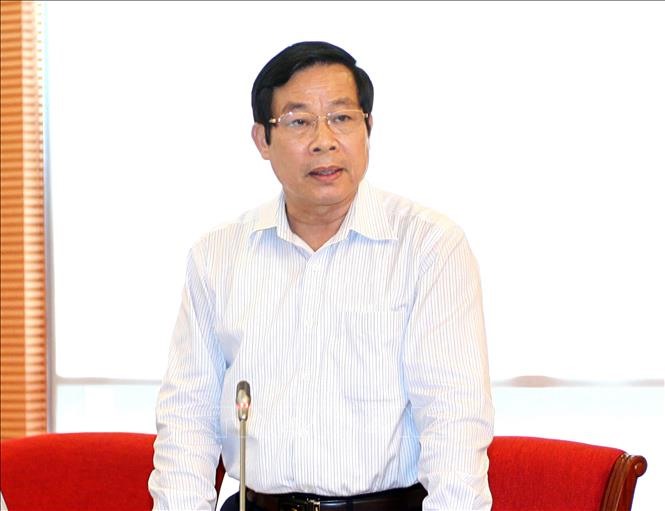 Politics & Law
Politics & Law

Retired government officials will not be allowed to found, own or run private companies in areas under the jurisdiction and management of their former posts for at least six months after retirement, heard a conference in Hà Nội yesterday.
 |
| Nguyễn Bắc Son, former Minister of Information and Communications, charged with corruption in February, was of a number of high ranking officials brought to justice in recent years for abusing their positions. — VNA/VNS File photo |
HÀ NỘI — Retired government officials will not be allowed to found, own or run private companies in areas under the jurisdiction and management of their former posts for at least six months after retirement, heard a conference in Hà Nội on Wednesday.
This is the latest and most notable rule among a series of legislative moves in Việt Nam’s 2018 Anti-corruption Law. In recent years, the Government has stepped up efforts to address the country’s rampant corruption, signalling it out as a threat to the Government’s legitimacy and a major hurdle to national development.
Retired officials whose former posts were with the ministries of Industry and Trade, Planning and Investment, Labour, Invalids and Social Affairs, Agriculture and Rural Development, Finance, Natural Resource and Environment, Construction, and Justice; the State Bank of Vietnam; the Government Inspectorate; the Government Office; and the State Capital Investment Corporation will be barred from taking part in their respective business areas for a period of 12 to 24 months.
Officials who worked under the ministries of Education and Training, Science and Technology, Culture, Sports and Tourism, and Health; the Vietnam Social Security and the Committee for Ethnic Minority Affairs will see a six to 12 month ban.
The ministries of Foreign Affairs, Public Security, and Defence and other governmental agencies are expected to follow suit and set up their own waiting periods for their retired officials.
Stricter regulations on gifting and receiving gifts were introduced in the country’s new anti-corruption law, under which public assets can only be gifted for charity purposes or as part of a compensation programme for high-ranking public servants and families of revolutionaries. Such activities will be under the supervision and regulation of the Ministry of Finance.
Public servants who received gifts are required to return them or report them within five days to their respective office if returning them is not feasible.
Another highlight of the 2018 Anti-corruption Law is the shifting focus to the private sector with fines ranging from US$200 to $4000 for bribery or helping with bribery. The law is set to come into effect on July 1 this year.
The conference, which was held by the United Nations Development Programme and the Government Inspectorate, was part of a bigger project to promote a fair business environment among ASEAN countries.
Speaking at the conference, Akiko Fujii, Deputy Country Director at UNDP Vietnam, stressed the importance of fighting corruption. She identified it as one of the biggest obstacles to the country’s objective of achieving the Sustainable Development Goals by 2030.
The annual cost of international corruption was estimated at $3.6 trillion, more than five per cent of global GDP, according to a UN’s statement last year. — VNS




